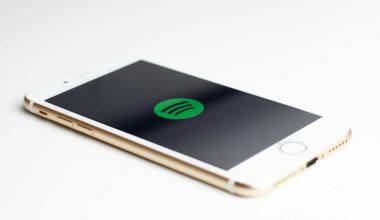Have you ever wondered how your favorite musicians earn money when you stream their songs on platforms like Spotify? With millions of users and billions of streams, Spotify is one of the biggest players in the music industry. But there’s a growing issue: Spotify not paying royalties fairly to artists has become a hot topic. This blog dives deep into why this is happening and what it means for artists and music lovers alike.
The Basics of Spotify Royalties
To understand the issue, let’s start with how Spotify royalties work. Every time you play a song, Spotify generates revenue—mainly from subscriptions and ads. A portion of this revenue is meant to go to the artists, but here’s the kicker: the amount artists receive is shockingly low.
Spotify uses a complex formula to calculate payments. Essentially, it pays rights holders—like record labels and publishers—a small fraction of a cent per stream. But by the time the money trickles down to artists, the payout can feel more like an insult than a paycheck.
The Problem With the Current Model
So, what’s the real issue with Spotify not paying royalties fairly? Let’s break it down:
- Low Per-Stream Payouts: On average, Spotify pays between $0.003 and $0.005 per stream. This means an artist would need millions of streams to make a livable income.
- Middlemen Take the Biggest Cut: Most of the money goes to record labels and other intermediaries before it reaches the artist.
- The Pro-Rata Model: Spotify’s payout system prioritizes big-name artists and ignores niche or independent musicians.
For example, if you’re an indie artist with a loyal but small audience, you’ll earn far less than a pop star with millions of streams.
The Impact on Artists
Imagine pouring your heart and soul into creating music, only to earn pennies for your efforts. This is the reality for many musicians. Spotify’s royalty structure often leaves artists struggling to make ends meet.
Many artists have voiced their frustrations about Spotify not paying royalties fairly. They argue that the current system devalues their art and makes it harder to sustain a career in music. In some cases, musicians have resorted to crowdfunding or side jobs to survive.
Why Isn’t Spotify Paying More?
You might wonder, “With all the money Spotify makes, why can’t they pay artists more?” The answer lies in Spotify’s business model. While the platform generates significant revenue, it also has substantial costs, including:
- Licensing fees to record labels
- Operating expenses
- Investments in technology and expansion
Additionally, Spotify faces stiff competition from other streaming platforms like Apple Music and Amazon Music. To stay competitive, Spotify focuses on growth over profitability, which often comes at the expense of artists.
The Role of Record Labels
While Spotify gets most of the blame, record labels also play a significant role in the problem. Labels typically negotiate licensing agreements with Spotify, and they’re the ones who decide how to split the earnings with artists. Unfortunately, these deals often favor the labels, leaving artists with a smaller share.
For example, a label might take 50-70% of the revenue, leaving the artist with whatever’s left. This means even if Spotify were to increase its payouts, artists might not see much of a difference unless labels change their practices.
What Are Artists Doing About It?
Artists are not staying silent. Many have started advocating for change. Some of the steps they’re taking include:
- Organizing Protests: Movements like “Justice at Spotify” are pushing for fairer payouts and more transparency.
- Going Independent: Some artists are bypassing labels entirely and using platforms like Bandcamp to sell their music directly to fans.
- Exploring Alternative Revenue Streams: From merchandise to live streaming, musicians are finding creative ways to earn money outside of Spotify.
How Can Fans Help?
If you’re a music lover, you might be wondering how you can support your favorite artists. Here are a few ideas:
- Buy Their Music: Purchasing albums or singles directly puts more money in artists’ pockets.
- Attend Live Shows: Concerts are a significant source of income for many musicians.
- Support Them on Social Media: Spreading the word about their work can help them gain a larger audience.
The Future of Streaming and Royalties
The issue of Spotify not paying royalties fairly isn’t going away anytime soon. However, there’s hope for change. With growing awareness and pressure from artists, fans, and even lawmakers, the industry might see reforms in the coming years.
Some possible solutions include:
- Adopting a User-Centric Payment Model: This would ensure that your subscription fee goes directly to the artists you listen to.
- Increased Transparency: Platforms like Spotify could provide clearer breakdowns of how revenue is distributed.
- Government Intervention: Some countries are considering legislation to ensure fairer payouts for artists.
Conclusion
As a listener, you have the power to make a difference. By supporting artists directly and advocating for change, you can help create a fairer music industry for everyone.
Spotify has revolutionized how we consume music, but it’s also created new challenges for artists. The issue of Spotify not paying royalties fairly is a complex problem that requires cooperation from all parties involved—streaming platforms, record labels, and fans.
For further reading, explore these related articles:
- The Evolution and Vibrance of the Indian Music Industry
- Zee Music Company Owner: Shaping the Sound of India
For additional resources on music marketing and distribution, visit DMT Records Private Limited.






